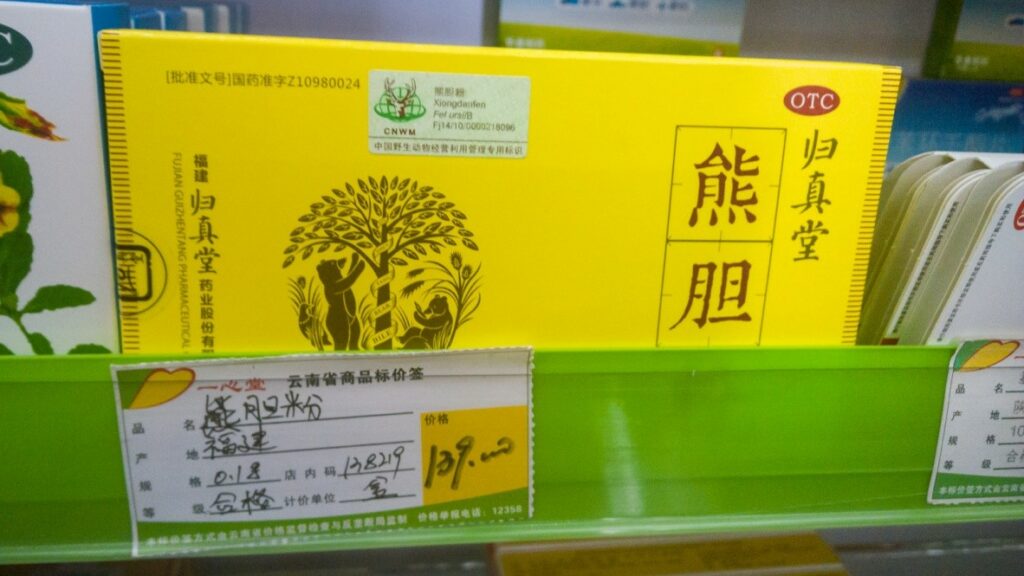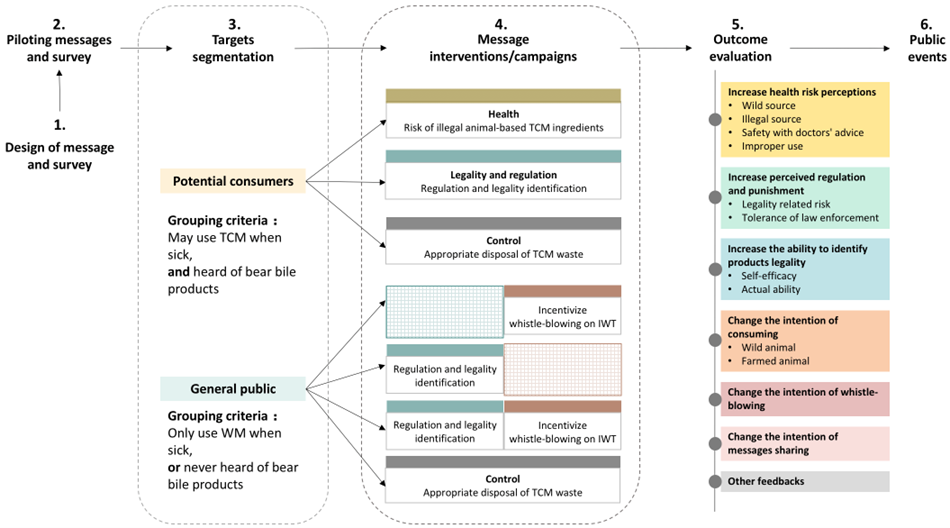Bear bile has been used in Traditional Chinese Medicine for thousands of years, with the market in China predominantly involving bile from Asiatic black bears. Despite the introduction of bear farming across Asia in the 1970s to supply the trade in bile, little is known about the effects of farming on demand for wild bile, or the current impact that the trade in bear bile has on wild bears. At the 2012 IUCN World Conservation Congress in S.Korea, concern about bear farming led to the adoption of Recommendation 139, which called for a “scientifically independent, peer-reviewed situation analysis” to evaluate the contribution of bear farming to the status of wild bear populations.

This project will directly address this Recommendation, taking a consumer and market-based approached using methods designed to understand how the market for farmed bear bile has affected the market for wild bear bile by investigating the complex interactions of these two markets (both in terms of demand and product availability). After the initial funding of meetings between experts from various IUCN Spcialist Groups and the Chinese Government in 2013-2014, Bears in Mind funded a Key Informant Survey conducted in December 2015, which was most helpful in designing the follow-up in-depth investigation. In 2015 interviews were conducted by a China-IUCN team to collect important information about the trade and management of Asiatic black bears in China. Trade in this sense, included the legal and illegal trade. It also included trade in live animals as well as their parts (bear-bile and bear paws). Interviews were conducted in a qualitative format, intended to guide further research and analysis.
2017 – 2019
This follow-up began end of 2017, when Bears in Mind funded a continuation of the large-scale study led by the University of Oxford in the UK in close cooperation with the Sun Yat Sen University in China, the SFA and the IUCN SSC Bear Specialist Group. The focus was on the consumption, prescription and sale of bear bile, which resulted in some of the first datasets on the prevalence and motivations for bear bile consumption across four provinces in China.
Online consumer survey
The team had a final sample of 1,845 respondents. Most (88%, n = 1621) had used some form of bear bile in their lifetime, with more than 2/3 of these consumers (70.1%, n = 1145) buying bile within the last year. Most people (79.3%, n = 1462) knew at least one bile-user, with parents and grandparents being the most frequently reported users. Most consumers (85.6% (n = 1388) stated that they had used bile for medicinal purposes, with 64.1% (n = 1036) reporting that they had used it as a health tonic, and 19% (n = 308) as a gift. The most common place people reported buying bile was at the pharmacy (n = 1142) followed by a hospital (n = 1045), with the least common being from a personal contact (n = 140). The most frequently reported form of bile used was eyedrops (n = 749), with tea the least reported (n = 42). Although 390 people reported using a bear gallbladder, mismatches between reported source and form suggest many do not know the source of bile they use.
Online trade
Data collection on online sales for bear bile products on the domestic markets. Information was mostly obtained from e-commerce platforms like Baidu and Bing.cn, as well as select discussion forums like WeChat and social mediaplatforms, to provide insights in the online trading environment from both formal and informal interactions, and consumer interest for specific bear bile product types, particularly
of farmed and synthetic origin.

2021 – present
In January-April 2021 Sun Yat-sen University (China) and the University of Oxford (UK) worked with multi-stakeholders of bear bile consumption, including consumers, pharmacy workers and TCM doctors to co-design post-COVID19 strategies for reducing illegal bear bile consumption. Specifically, the organized workshops highlighted that consumers and/or potential consumers would respond best to health-related and legality-focussed messaging, whereas the general public should respond best to legality-focussed messaging and incentives to report illegal consumption when they saw it. In this project, the team will test interventions designed in these workshops with key target groups, to evaluate their effectiveness for reducing illegal bear bile use and sale, and make recommendations for future larger-scale interventions. In addition to testing the interventions, the team will also use their findings for larger public outreach, by holding a ‘bear event day’ in the popular Guangzhou Zoo, as there will be a series of events or activities about biodiversity conservation. After the events, the team will also provide the education centre of the zoo with some educational materials from our project.

More information soon…


